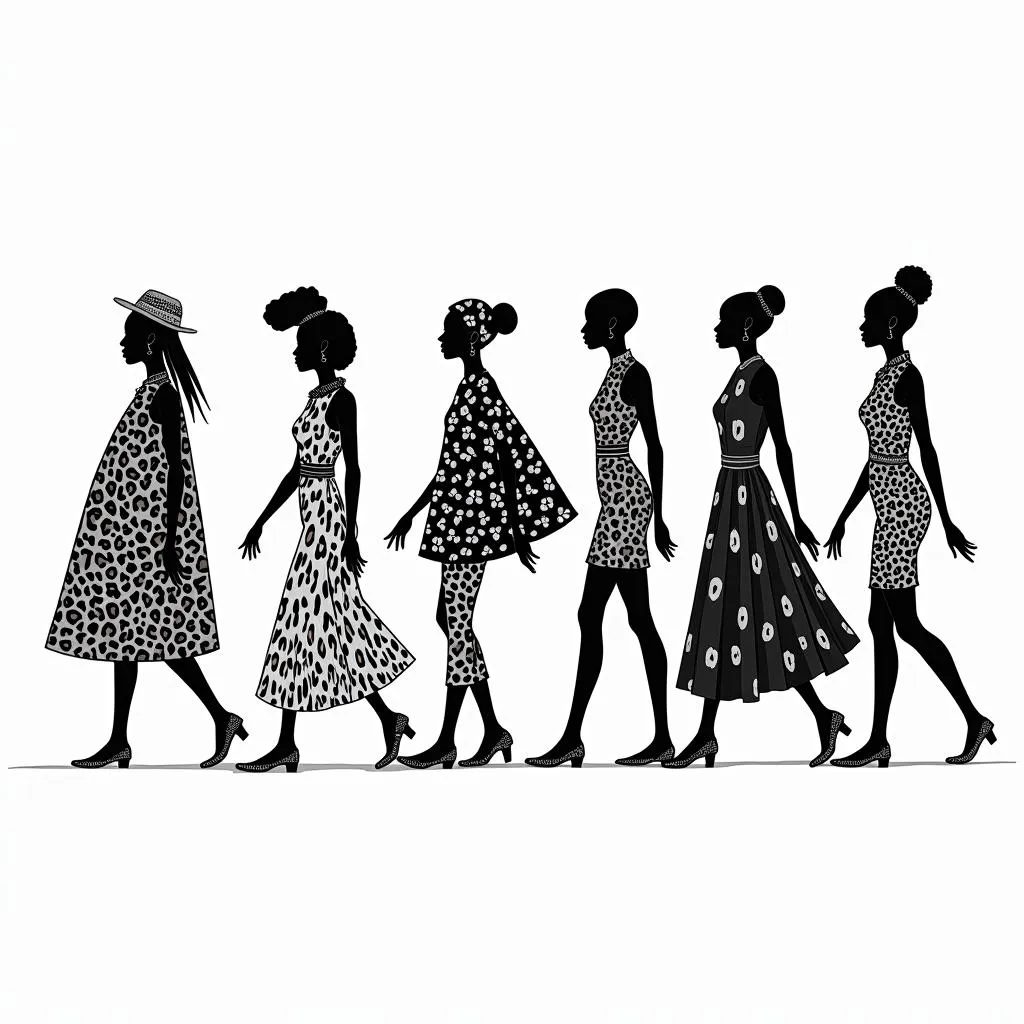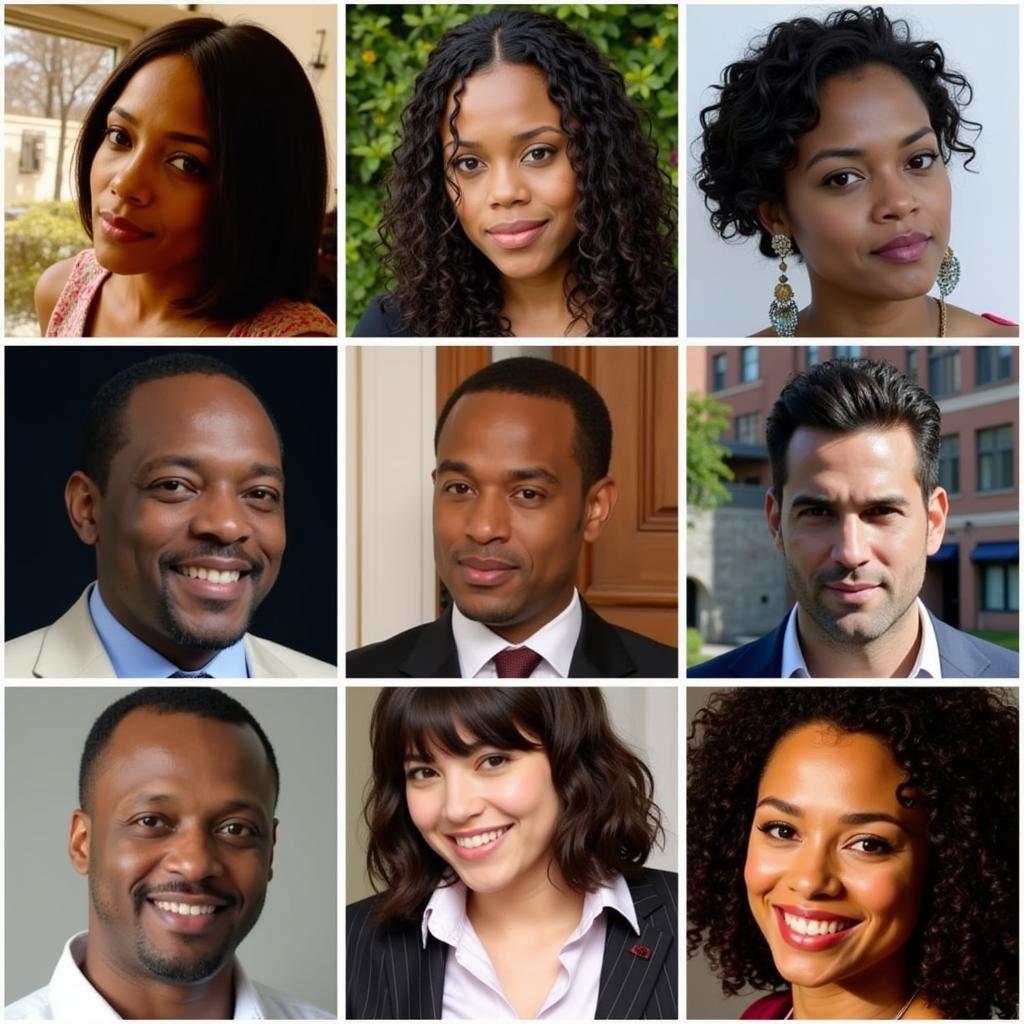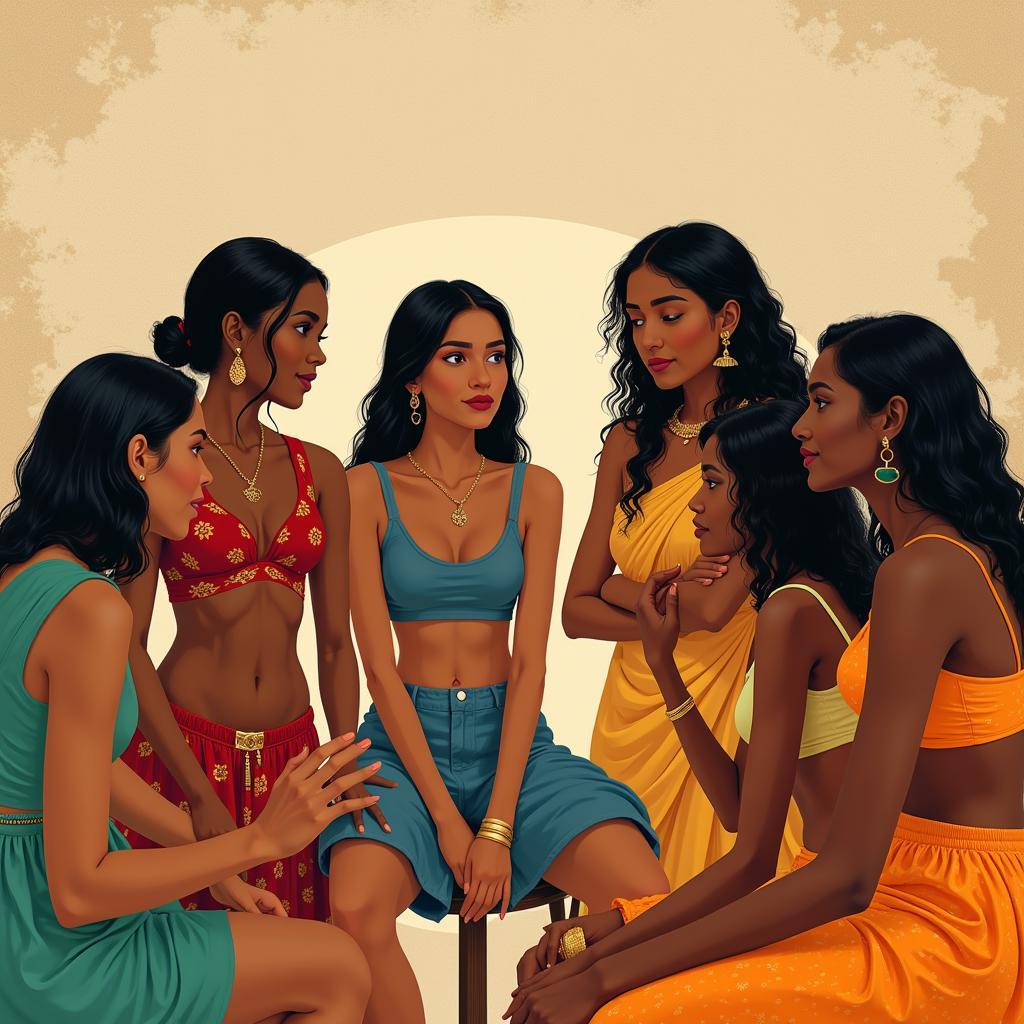African Culture and Beliefs: A Rich Tapestry of Traditions
African Culture And Beliefs are diverse and multifaceted, reflecting the continent’s rich history, diverse ethnic groups, and varied geographical landscapes. From the vibrant music and dance traditions to the intricate art forms and profound spiritual beliefs, Africa offers a captivating tapestry of cultural expressions that have shaped the lives of its people for centuries.
The Significance of Community in African Culture
One of the central pillars of African culture is the strong emphasis on community. Across the continent, people identify strongly with their tribe, ethnic group, and village, fostering a deep sense of belonging and shared identity. This communal spirit is evident in the importance placed on family, respect for elders, and the practice of collective decision-making. In many African societies, decisions are made through consensus-building, ensuring that everyone has a voice and that the needs of the community are met.
The Power of Oral Tradition in Preserving History
For centuries, African culture has been passed down orally from one generation to the next through stories, songs, proverbs, and rituals. Griots, or storytellers, play a vital role as keepers of history, sharing ancestral wisdom, recounting historical events, and preserving cultural values. These oral traditions not only entertain but also educate and instill a sense of identity and belonging.
The Spirituality of African Beliefs
Religion and spirituality are deeply ingrained in African culture. Traditional African religions often center around the belief in a supreme being, as well as spirits that inhabit the natural world. Ancestors are also highly revered and believed to influence the lives of the living. Rituals, ceremonies, and offerings play a significant role in African spiritual practices, connecting people to their ancestors, the spirit world, and the natural environment.
The Diversity of African Art Forms
African art is as diverse as the continent itself, encompassing a wide range of styles, materials, and expressions. From intricate wood carvings and bronze sculptures to colorful textiles and beadwork, African art reflects the creativity, skill, and cultural values of its people. Each region of Africa has its own unique artistic traditions, often incorporating symbolism, geometric patterns, and depictions of daily life, mythology, and spirituality.
The Rhythms of African Music and Dance
Music and dance are integral parts of African culture, serving as forms of entertainment, storytelling, and social commentary. From the rhythmic drumming and call-and-response vocals of West African music to the energetic dances of East Africa and the soulful melodies of Southern Africa, each region boasts its own distinctive musical and dance traditions. These vibrant art forms bring people together to celebrate, mourn, share stories, and express their cultural identity.
Exploring African Cuisine: A Fusion of Flavors
African cuisine is as diverse as its cultures, offering a tantalizing array of flavors and ingredients. From the spicy stews and flavorful tagines of North Africa to the hearty stews and grilled meats of East Africa and the flavorful seafood dishes of West Africa, each region boasts its own unique culinary traditions.
The Importance of Respect in African Culture
Respect is a fundamental value in African culture. This includes respect for elders, authority figures, and tradition. Children are taught from a young age to show deference to their parents, grandparents, and other adults. This emphasis on respect fosters a sense of order and hierarchy within families and communities.
The Impact of Colonization on African Culture
The colonial era had a profound impact on African culture and beliefs. European powers imposed their languages, religions, and cultural practices on many African societies, leading to the suppression of indigenous traditions and beliefs. However, despite the challenges of colonization, many African cultures have demonstrated resilience and adaptability, preserving their core values and traditions while incorporating new influences.
The Evolution of African Culture in the Modern Era
In the post-colonial era, African culture continues to evolve and adapt to the challenges and opportunities of globalization and modernization. While traditional values and practices remain strong in many parts of the continent, there is a growing trend towards urbanization, technological advancement, and the embrace of global influences.
Conclusion
African culture and beliefs are rich, diverse, and ever-evolving. From the significance of community and the power of oral tradition to the diversity of art forms and the rhythms of music and dance, African culture offers a captivating tapestry of traditions and expressions. Understanding and appreciating the depth and beauty of African culture requires a willingness to learn, to listen, and to embrace the continent’s rich heritage.
FAQs about African Culture and Beliefs
1. What are some common values in African culture?
Some common values in African culture include community, respect for elders, hospitality, and a strong connection to ancestors and spirituality.
2. What is the role of music in African culture?
Music plays a central role in African culture, serving as a form of entertainment, storytelling, social commentary, and a way to connect with spirituality.
3. How has colonization impacted African culture?
Colonization had a significant impact on African culture, leading to the suppression of some traditions and the introduction of new influences. However, African cultures have demonstrated resilience and adaptability in preserving their core values.
4. What are some popular African art forms?
Popular African art forms include wood carvings, bronze sculptures, textiles, beadwork, pottery, and masks.
5. What are some common misconceptions about African culture?
One common misconception is that Africa is a homogenous continent with a single culture. In reality, Africa is incredibly diverse, with thousands of different ethnic groups, languages, and cultural traditions.
Need More Information?
For further insights and inquiries, reach out to our dedicated team.
Contact us:
Phone: +255768904061
Email: kaka.mag@gmail.com
Address: Mbarali DC Mawindi, Kangaga, Tanzania.
Our customer service is available 24/7.



